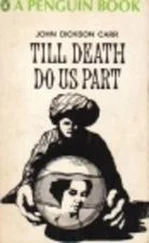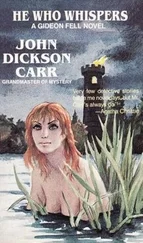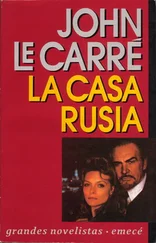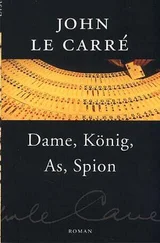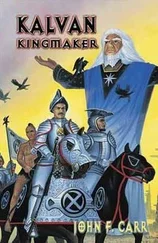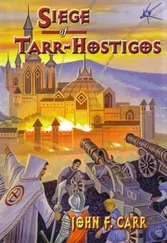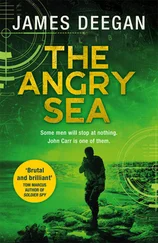* * *
Now with his night-vision glasses, now without, he peered into the density but saw no more sign of Jeb or his men.
On the first screen the inflatable was closing on the shore. Surf was lapping the camera, black rocks were approaching.
The second screen was dead.
He moved to the third. The camera zoomed in on house seven.
The front door was shut, the windows still uncurtained and unlit. He saw no phantom light held by a shrouded hand. Eight masked men in black were clambering out of the inflatable, one pulling another. Now two of the men were kneeling, training their weapons at a point above the camera. Three more men stole into the camera’s lens and disappeared.
A camera switched to the coast road and the terrace, panning across the doors. The door to house seven was open. An armed shadow stood guard beside it. A second armed shadow slipped through it; a third, taller shadow slipped after him: Shorty.
Just in time the camera caught little Jeb with his Welsh miner’s wading walk disappearing down the lighted stone staircase to the beach. Above the clatter of the wind came a clicking sound like dominoes collapsing: two sets of clicks, then nothing. He thought he heard a yell but he was listening too hard to know for sure. It was the wind. It was the nightingale. No, it was the owl.
The lights on the steps went out, and after them the orange sodium street lamps along the metalled track. As if by the same hand, the two remaining computer screens went blank.
At first he refused to accept this simple truth. He pulled on his night-vision glasses, took them off, then put them on again and roamed the computers’ keyboards, willing the screens back to life. They would not be willed.
A stray engine barked, but it could as well have been a fox as a car or the outboard of an inflatable. On his encrypted cellphone, he pressed ‘1’ for Quinn and got a steady electronic wail. He stepped out of the hide and, standing his full height at last, braced his shoulders to the night air.
A car emerged at speed from the tunnel, cut its headlights and screeched to a halt on the verge of the coast road. For ten minutes, twelve, nothing. Then out of the darkness Kirsty’s Australian voice calling his name. And after it, Kirsty herself.
‘What on earth happened?’ he asked.
She steered him back into the hide.
‘Mission accomplished. Everyone ecstatic. Medals all round,’ she said.
‘What about Punter ?’
‘I said everyone’s ecstatic, didn’t I?’
‘So they got him? They’ve taken him out to the mother ship?’
‘You get the fuck out of here now and you stop asking questions. I’m taking you down to the car, the car takes you to the airport like we planned. The plane’s waiting. Everything’s in place, everything’s hunky-dory. We go now .’
‘Is Jeb all right? His men? They’re okay?’
‘Pumped up and happy.’
‘What about all this stuff?’ – he means the metal boxes and computers.
‘This stuff will be gone in three seconds cold just as soon as we get you the fuck out of here. Now move it.’
Already they were stumbling and sliding into the valley, with the sea wind whipping into them and the hum from engines out to sea louder even than the wind itself.
A huge bird – perhaps an eagle – scrambled out of the scrub beneath his feet, screaming its fury.
Once, he fell headlong over a broken catch-net and only the thicket saved him.
Then, just as suddenly, they were standing on the empty coast road, breathless but miraculously unharmed.
The wind had dropped, the rain had ceased. A second car was pulling up beside them. Two men in boots and tracksuits sprang out. With a nod for Kirsty and nothing for himself, they set off at a half-run towards the hillside.
‘I’ll need the goggles,’ she said.
He gave them to her.
‘Have you got any papers on you – maps, anything you kept from up there?’
He hadn’t.
‘It was a triumph. Right? No casualties. We did a great job. All of us. You, too. Right?’
Did he say ‘Right’ in return? It no longer mattered. Without another glance at him, she was heading off in the wake of the two men.

2
On a sunny Sunday early in that same spring, a thirty-one-year-old British foreign servant earmarked for great things sat alone at the pavement table of a humble Italian café in London’s Soho, steeling himself to perform an act of espionage so outrageous that, if detected, it would cost him his career and his freedom: namely, recovering a tape recording, illicitly made by himself, from the Private Office of a Minister of the Crown whom it was his duty to serve and advise to the best of his considerable ability.
His name was Toby Bell and he was entirely alone in his criminal contemplations. No evil genius controlled him, no paymaster, provocateur or sinister manipulator armed with an attaché case stuffed with hundred-dollar bills was waiting round the corner, no activist in a ski mask. He was in that sense the most feared creature of our contemporary world: a solitary decider. Of a forthcoming clandestine operation on the Crown Colony of Gibraltar he knew nothing: rather, it was this tantalizing ignorance that had brought him to his present pass.
Neither was he in appearance or by nature cut out to be a felon. Even now, premeditating his criminal design, he remained the decent, diligent, tousled, compulsively ambitious, intelligent-looking fellow that his colleagues and employers took him for. He was stocky in build, not particularly handsome, with a shock of unruly brown hair that went haywire as soon as it was brushed. That there was gravitas in him was undeniable. The gifted, state-educated only child of pious artisan parents from the south coast of England who knew no politics but Labour – the father an elder of his local tabernacle, the mother a chubby, happy woman who spoke constantly of Jesus – he had battled his way into the Foreign and Commonwealth Office, first as a clerk, and thence by way of evening classes, language courses, internal examinations and two-day leadership tests, to his present, coveted position. As to the Toby , which might by the sound of it set him higher on the English social ladder than his provenance deserved, it derived from nothing more elevated than his father’s pride in the holy man Tobias, whose wondrous filial virtues are set down in the ancient scripts.
What had driven Toby’s ambition – what drove it still – was something he barely questioned. His schoolfriends had wished only to make money. Let them. Toby, though modesty forbade him to say so in so many words, wished to make a difference – or, as he had put it a little shamefacedly to his examiners, take part in his country’s discovery of its true identity in a post-imperial, post-Cold War world. Given his head, he would long ago have swept away Britain’s private education system, abolished all vestiges of entitlement and put the monarchy on a bicycle. Yet even while harbouring these seditious thoughts, the striver in him knew that his first aim must be to rise in the system he dreamed of liberating.
And in speech, though he was speaking at this moment to no one but himself? As a natural-born linguist with his father’s love of cadence and an almost suffocating awareness of the brand-marks on the English tongue, it was inevitable that he should discreetly shed the last tinges of his Dorset burr in favour of the Middle English affected by those determined not to have their social origins defined for them.
With the alteration in his voice had come an equally subtle change in his choice of clothing. Conscious that any moment now he would be sauntering through the gates of the Foreign Office with every show of being at his managerial ease, he was wearing chinos and an open-necked shirt – and a shapeless black jacket for that bit of off-duty formality.
Читать дальше


